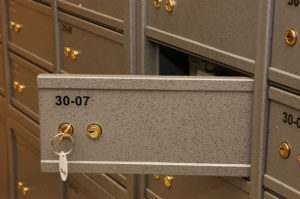Estate Planning after Divorce

Estate planning after divorce takes careful consideration. Without a spouse as the center of an estate plan, the executors, trustees, guardians or agents under a power of attorney and health care proxies will have to be chosen from a more diverse pool of those that are connected to you.
Wealth Advisor’s recent article entitled “How to Revise Your Estate Plan After Divorce” explains that beneficiary forms tied to an IRA, 401(k), 403(b) and life insurance will need to be updated to show the dissolution of the marriage.
There are usually estate planning terms that are included in agreements created during the separation and divorce. These may call for the removal of both spouses from each other’s estate planning documents, assets, bank and retirement accounts. For example, in Texas, bequests to an ex-spouse in a will prepared during the marriage are voided after the divorce. Even though the old will is still valid, a new will has the benefit of realigning the estate assets with the intended recipients and avoiding difficulties in probating the will.
However, any trust created while married is treated differently. Revocable trusts can be revoked, and the assets held by those trusts can be part of the divorce. Irrevocable trusts involving marital property are less likely to be dissolved, and after the death of the grantor, distributions may be made to an ex-spouse as directed by the trust.
A big task in the post-divorce estate planning process is changing beneficiaries. Ask for change of beneficiary forms for all retirement accounts. Without a stipulation in the divorce decree ending their interest, an ex-spouse still listed as beneficiary of an IRA or life insurance policy may still receive the proceeds at your death. Sometimes beneficiary designations or retitling of assets occur during the divorce process, but often they occur after resolving the divorce and aren’t complete by the time an estate planning attorney needs to be involved.
Divorce makes children assume responsibility at an earlier age. Adult children in their 20s or early 30s typically assume the place of the ex-spouse as fiduciaries and health care proxies, as well as agents under powers of attorney, executors and trustees. Many clients often try to coordinate their estate plans with their ex-spouses to ensure their mutual children are provided for.
If the divorcing parents have minor children, they must choose a guardian to care for the children, in the event that both parents pass away. This was always true, but the need for it is heightened if parents aren’t on the same page.
Ask an experienced estate planning attorney to help you with the issues that are involved in estate planning after a divorce.
Reference: Wealth Advisor (July 7, 2020) “How to Revise Your Estate Plan After Divorce”

